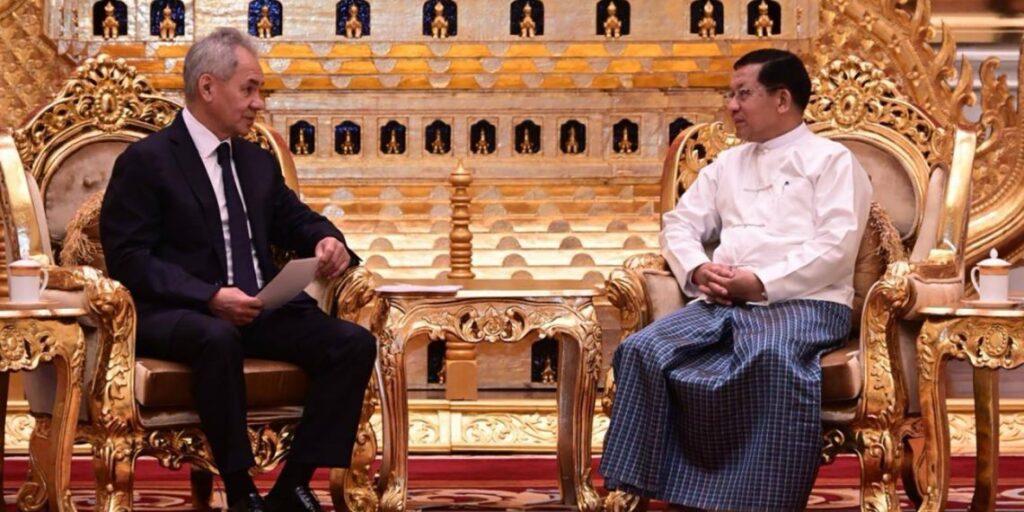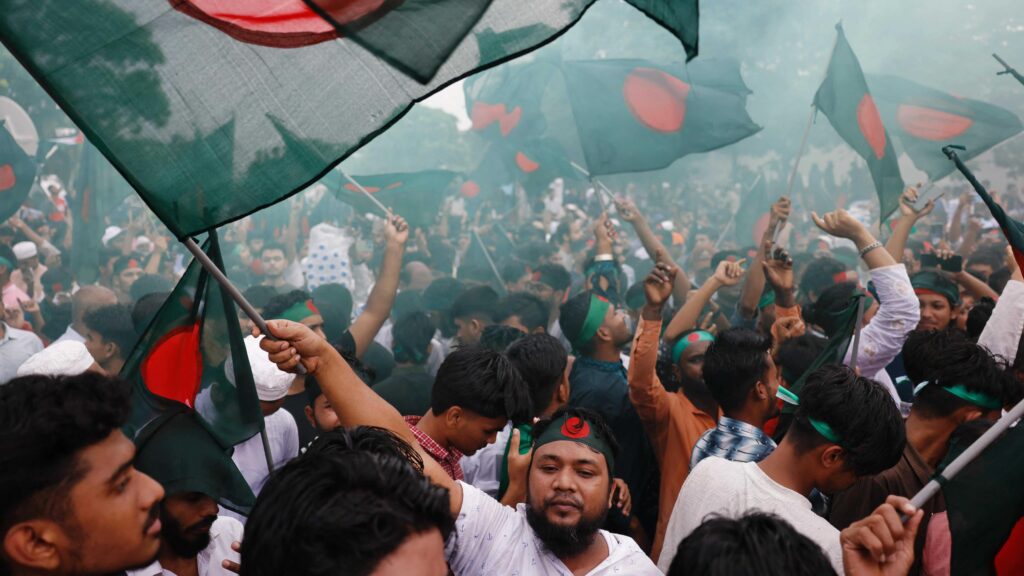MANTRAYA ANALYSIS #90: 16 JULY 2025
ADARSH VIJAY & SHANTHIE MARIET D’SOUZA
Abstract
Afghanistan-Pakistan relations have invariably remained volatile. The Taliban’s resurgence in Kabul in 2021, at least in its immediate phase, was seen as a source of geostrategic gain for Islamabad, which had been pursuing a policy of seeking “strategic depth” in that country. However, backtracking in the Taliban’s Pakistan policy has gradually turned a strategic asset into a liability. The acrimonious relationship, combined with the distrust between the Taliban and Pakistan’s military establishment, has led to the Taliban making outreach to India. The Taliban’s tilt towards India following the terrorist attack in Pahalgam in April 2025 is one such example. This article maps the implications of the Pahalgam terrorist attack for Af-Pak ties. It highlights the post-Pahalgam scenario as a new temporal frame for Kabul-Islamabad relations.

Strategic Victory to Blowback
The terrorist attack in India’s Pahalgam on 22 April 2025 sent shockwaves across South Asia and beyond. The attack, alleged to be launched by The Resistance Front (TRF), an affiliate of the Pakistan-based Lashkar-e-Taiba (LeT), not only resulted in escalating tensions between India and Pakistan but also altered the “Taliban 2.0 spirit” in Afghanistan-Pakistan (Af-Pak) relations. The attack further brought Pakistan under intense international scrutiny. Citing evidence of cross-border terrorism, New Delhi responded with a series of diplomatic and military responses, including the launch of Operation Sindoor. Though the India-Pakistan relations were an immediate collateral casualty, a largely unnoticed shift was the redefining of Kabul-Islamabad ties.
Pakistan’s Afghanistan policy has been based on “strategic depth”—a concept that facilitates a friendly regime in Kabul, acting as a buffer against India’s influence, particularly in conflict situations. It is no surprise that Pakistan was one of only three countries (apart from Saudi Arabia and the United Arab Emirates) to recognise the Taliban regime in the 1990s. The former’s covert ties with various Afghan factions, particularly the Haqqani network, still exist.[1] Clearly, the 2001 intervention by the United States (US) in Afghanistan hardly discouraged Islamabad’s quest for strategic depth in Afghanistan, and it continued providing support, training, and sanctuary to the Taliban insurgents.
Pakistan deemed the 2021 resurgence of the Taliban in Kabul as a strategic victory in the initial days. However, it gradually presented Islamabad with a new set of challenges. Taliban’s mandate to govern a war-ravaged and economically devastated Afghanistan, as well as its support to the Tehreek-e-Taliban (TTP) and its position on the Durand Line, led to an assertion of strategic autonomy, often in ways that ran counter to Pakistan’s interests. In January 2025, following a meeting with India’s Foreign Secretary Vikram Misri in Dubai, the Taliban’s foreign office identified India as “a significant regional and economic partner.”[2] The meeting also underlined the Taliban’s dependency on India for development projects, together with ongoing humanitarian aid.[3]
Kabul’s tilt towards Delhi: A Paradigm Shift?
The Pahalgam attack revealed and exacerbated the hitherto unaddressed issues in the regional geopolitical calculus. Globally, both Afghanistan and Pakistan are considered safe havens for terrorists. Surprisingly, the Taliban government swiftly condemned the attack and offered condolences to the victims.[4] This was hardly rhetorical. Rather, it underlined a paradigm shift in the Taliban’s foreign policy priorities. The Taliban were decisively messaging and breaking with their past as a violent group, which had targeted the Indian mission and personnel in Afghanistan. More importantly, they aimed to detach themselves from the label of being a proxy of Islamabad and to establish their status as responsible and independent regional actors. In a way, the lack of consensus on “India” between Afghanistan’s new regime and Pakistan’s Establishment was evident. Furthermore, the thaw in Taliban-New Delhi ties, amidst the military conflict between India and Pakistan that followed the terror attack, exacerbated the faultiness in the undefined strategic depth that Islamabad wants Kabul to offer.
Consequently, a high-level meeting between Anand Kumar, Joint Secretary, India’s Ministry of External Affairs (MEA), and Mawlawi Amir Khan Muttaqi, Taliban’s acting Foreign Minister, focused on a briefing on the role of Pakistan in the Pahalgam attack.[5] Restarting stalled infrastructure and development projects was also on the agenda. In May, India’s External Affairs Minister, S. Jaishankar, also thanked his Afghan counterpart for condemning the attack.[6] Touted as a strategic push, India relaunched issuing visas for Afghan nationals through a “New Afghan Visa” module in the post-Pahalgam context.[7] This is yet another sign from India of lessening distance with the Taliban regime, serving as a strategic signal to Pakistan.
Blame Game: A Tale of Distrust
Islamabad has long accused Kabul of harbouring insurgents from the TTP and Baloch armed groups.[8] The TTP, known for its deadly attacks in Pakistan, especially in the recent past, is alleged to be operating from eastern Afghanistan.[9] Pakistan’s military has been conducting cross-border strikes against alleged TTP hideouts. The civilian casualties and infrastructure damage in Afghanistan’s Murg Bazaar in December 2024, owing to a Pakistani airstrike, had sparked outrage in Kabul.[10] The Taliban have tried returning the favours by accusing Islamabad of similar charges. A report of the Taliban’s Central Commission for Security and Clearance Affairs, published in early 2025, had accused Pakistan of sheltering militants in Baluchistan and Khyber-Pakhtunkhwa,[11] without specifying the organisation(s) to which the militants were affiliated. Islamabad has continued expelling thousands of Afghan refugees.[12] Torkham, a key border crossing, was closed in early 2025 due to heightened tension between Pakistan and Afghanistan over bunker construction by the latter near the Zero-Point.[13] In July 2025, the Pakistan military claimed to have killed 30 militants while foiling an infiltration from Afghanistan to Pakistan’s North Waziristan.[14]
For Pakistan, non-fulfilment of its traditional “strategic depth” in Afghanistan could be a serious setback. Despite its pleadings, the Taliban regime has done little to rein in the TTP, whose violent raids remain a serious challenge for the Pakistan military. In the last week of June, 16 Pakistan soldiers died in a suicide attack claimed by Hafiz Gul Bahadur (HGB), a faction within the TTP.[15] Since August 2021, violence has increased in the Pakistani territory bordering Afghanistan. Pakistan views the Taliban’s reluctance to act against TTP as a threat to its national security. Besides, Islamabad often alleges that India supports these so-called “anti-Pakistan” forces operating on Afghan soil.[16] Grappling with cross-border militancy and economic and political crises at home, Pakistan’s state capacity to contribute to regional stability has declined considerably.
Prognosis
The broader regional geopolitical dynamics could further worsen the issues. Iran, Russia, and Central Asian states have invariably been apprehensive of the spillover effects of instability in the Af-Pak region. The post-withdrawal rapprochement attempts by the US since 2021, which focus on counterterrorism, protection of American citizens (including the release of hostages) and regional security, as well as the deepening Chinese footprint in Afghanistan, contribute to strategic ambiguities in Af-Pak relations. With Russia on 3 July 2025 becoming the first country to officially recognise Afghanistan, the Taliban’s search for legitimacy is slowly finding traction. The Taliban’s condemnation of the Pahalgam attack and its attempt to gain New Delhi’s confidence were indicators of this pivot. Nevertheless, the China-Pakistan-Afghanistan trilateral dialogue in May 2025, which shaped a consensus on extending the China-Pakistan Economic Corridor (CPEC) to Afghanistan, can tilt the balance and restore a semblance of balance in Pakistan’s favour.[17]
The post-Pahalgam context, therefore, could mark the beginning of a new and important phase in Af-Pak relations. Volatility, realignments, and the erosion of old certainties characterise the latest chapter in the relations of those two countries. Moreover, the “India factor” is making a serious comeback in the Af-Pak region. All these are bound to shape the way both Islamabad and Kabul interact. While concession is a key tool in diplomacy to bring turbulent relations back on track, neither nation has shown much willingness to move towards mending ties. The road ahead remains rocky as Afghanistan enters yet another phase of the great game.
Endnotes
[1] Jeff M. Smith. “The Haqqani Network: The New Kingmakers in Kabul.” War on the Rocks, 12 November 2021. https://warontherocks.com/2021/11/the-haqqani-network-afghanistans-new-power-players/.
[2] “Taliban say India is a ‘significant regional partner’ after meeting.” Reuters, 9 January 2025. https://www.reuters.com/world/asia-pacific/taliban-say-india-is-significant-regional-partner-after-meeting-2025-01-09/.
[3] Ministry of External Affairs, Government of India. “Foreign Secretary’s meeting with the Acting Foreign Minister of Afghanistan.”, 8 January 2025. https://www.mea.gov.in/press-releases.htm?dtl%2F38898%2FForeign_Secretarys_meeting_with_the_Acting_Foreign_Minister_of_Afghanistan.
[4] “Afghan Taliban govt condemns Pahalgam attack, says such incidents undermine regional security.” Deccan Herald, 23 April 2025. https://www.deccanherald.com/india/afghan-taliban-govt-condemns-pahalgam-attack-says-such-incidents-undermine-regional-security-3506822.
[5] Sachin Parashar. “India brief Taliban; Afghanistan govt condemns Pahalgam attack.” Times of India, 29 April 2025. https://timesofindia.indiatimes.com/india/india-briefs-taliban-afghanistan-govt-condemns-pahalgam-attack/articleshow/120709288.cms?utm_source=contentofinterest&utm_medium=text&utm_campaign=cppst.
[6] “EAM Jaishankar speaks to Taliban’s acting foreign minister, thanks him for support after Pahalgam.” DD News, 16 May 2025. https://ddnews.gov.in/en/eam-jaishankar-speaks-to-talibans-acting-foreign-minister-thanks-him-for-support-after-pahalgam/.
[7] Shanthie Mariet D’Souza. “Understanding India’s Strategic Outreach to the Taliban in Afghanistan.” The Diplomat, 20 June 2025. https://thediplomat.com/2025/06/understanding-indias-strategic-game-with-the-taliban-in-afghanistan/.
[8] Besmillah Taban. “The Taliban’s Role in the Fragile Ceasefire Between India and Pakistan.” The Diplomat, 14 May 2025. https://thediplomat.com/2025/05/the-talibans-role-in-the-fragile-ceasefire-between-india-and-pakistan/.
[9] National Counterterrorism Center. “Tehrik-e Taliban Pakistan (TTP).” Office of the Director of National Intelligence, October 2022. https://www.dni.gov/nctc/terrorist_groups/ttp.html.
[10] “Pakistan launches series of airstrikes on Afghanistan, at least 46 killed.” Times of India, 25 December 2024. https://timesofindia.indiatimes.com/world/pakistan/pakistan-launches-series-of-airstrikes-on-afghanistan-at-least-15-killed/articleshow/116645120.cms.
[11] Rezaul H Laskar. “In a first, Taliban regime’s security report accuses Pak of sheltering militants.” Hindustan Times, 22 January 2025. https://www.hindustantimes.com/india-news/in-a-first-taliban-regime-s-security-report-accuses-pak-of-sheltering-militants-101737557168354.html.
[12] “Pakistan confirms its expulsion of more than 80,000 Afghans since April.” Al Jazeera, 18 April 2025. https://www.aljazeera.com/news/2025/4/18/over-80000-afghans-expelled-from-pakistan-as-deadline-nears.
[13] “Torkham border closure enters fifth day, trade losses hit $12 million amid Pakistan-Afghanistan standoff.” ANI News, 26 February 2025. https://www.aninews.in/news/world/asia/torkham-border-closure-enters-fifth-day-trade-losses-hit-12-million-amid-pakistan-afghanistan-standoff20250226223811/.
[14] Amy Stockdale with AFP, AP. “Pakistan: Army kills 30 militants at border to Afghanistan.” DW, 4 July 2025. https://www.dw.com/en/pakistan-army-kills-30-militants-at-border-to-afghanistan/a-73151948.
[15] “Pakistan: 16 soldiers killed in a suicide attack in northwestern part.” Mint, 28 June 2025. https://www.livemint.com/news/pakistan-13-soldiers-killed-in-a-suicide-attack-in-northwestern-part-11751099823564.html.
[16] Pakistan Ministry of Foreign Affairs. “Transcript of the Press Briefing by the Spokesperson on Friday, 04th July 2025.” Pakistan Ministry of Foreign Affairs, 4 July 2025. https://pakungeneva.pk/transcript-of-the-press-briefing-by-the-spokesperson-on-friday-04th-july-2025/.
[17] “China, Pakistan, Afghanistan agree to expand CPEC during trilateral talks.” Hindustan Times, 21 May 2025. https://www.hindustantimes.com/world-news/china-pakistan-afghanistan-agree-to-expand-cpec-during-trilateral-talks-101747818018065.html.
(Adarsh Vijay is an Assistant Professor in the Department of Political Science at Madras Christian College, Chennai. Dr. Shanthie Mariet D’Souza is the Founder & Executive Director of MISS. This analysis has been published as part of Mantraya’s ongoing “Fragility, Conflict and Peace Building” and “Mapping Terror & Insurgent Networks” projects. All Mantraya publications are peer-reviewed.)




